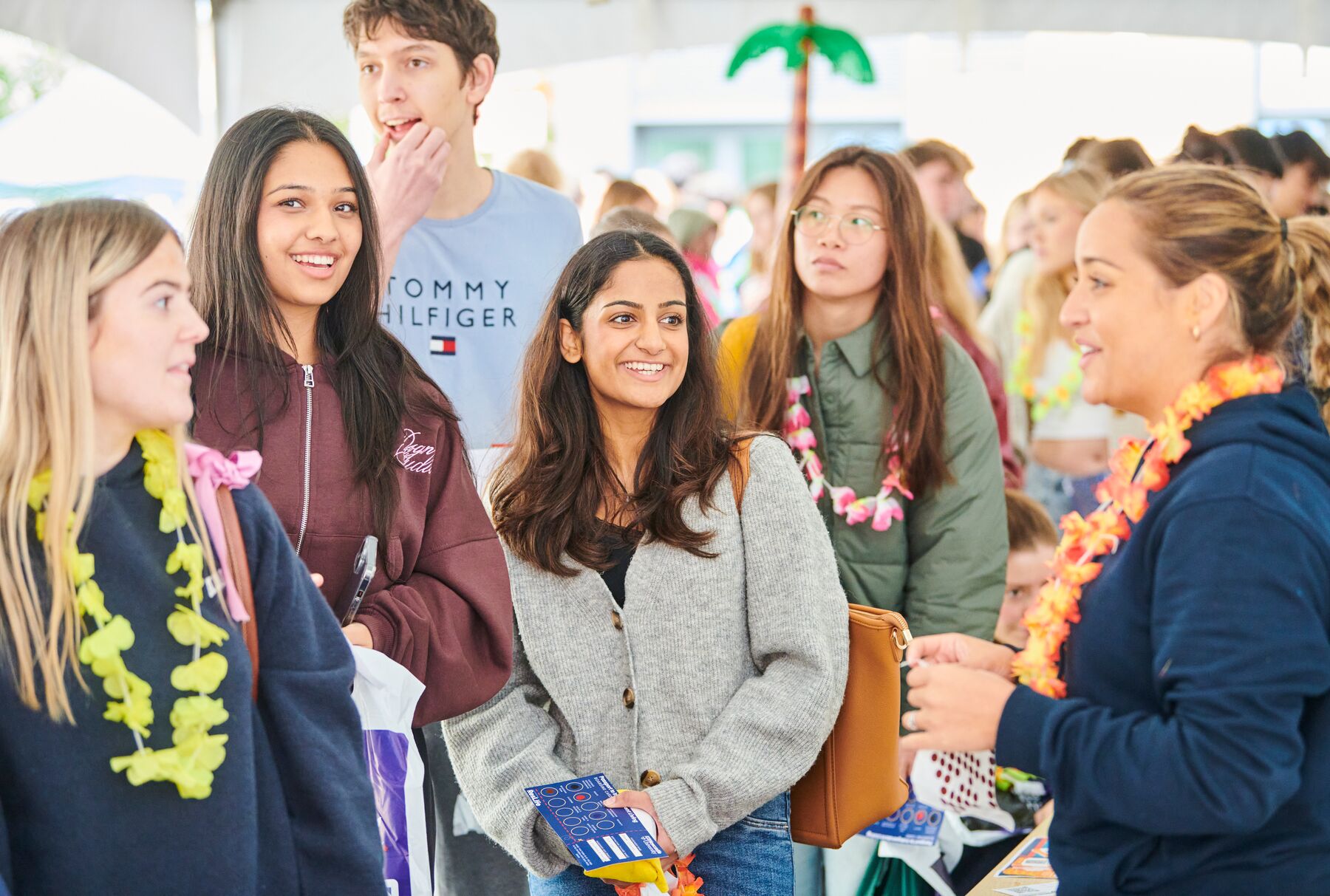School of Modern Languages Outreach Events
We develop and run regular outreach events across a number of language disciplines
School of Modern Languages outreach events
In the School of Modern Languages, we are committed to sharing our passion for languages and cultures with schools, communities, and the wider public. Our outreach events aim to inspire students, support teachers, and foster a deeper understanding of languages, literature, and cultural traditions from around the world.
Through interactive workshops, festivals, film screenings, and collaborative programmes, we create opportunities for learning, engagement, and cultural exchange across a range of languages, including German, Chinese, French, and Japanese.
German
The German language department at Newcastle University organises various events in partnership with:
- local schools
- other universities in the region
- the Goethe Institut, participating in their 'Think German Network' programme
- the German Academic Exchange Service (DAAD)
We bring students and teachers from various regions together, including:
- Teesside
- Durham
- Tyne and Wear
- Northumberland
- Cumbria
- North Yorkshire
We have enjoyed a number of successful outreach events in recent years, including:
- Teachers of German conference – June 2024
- German A-Level day – an experience of life as a student of German, with targeted input for A-Level German film and literature – March 2025
- 'TeachMeet' – an exploration of synergies between teachers of German and other academics in the region – June 2025
Chinese
The Chinese language department organises regular events to promote Chinese language and culture. We run these events for local schools and communities.
We put together a number of events in 2025, including:
- Chinese documentary film screening – an exploration of the themes of childhood, education, and inequality in China – March 2025
- Dragon Boat Festival – a celebration of music, poetry, dance and delicious zongzi in collaboration with the Confucius Institute, showcasing student talent and a deep cultural understanding of this tradition – June 2025
French
Dr Damien Hall, Senior Lecturer in French linguistics, recently took part in our French outreach events programme. Dr Hall performed at Bright Club, the ‘thinking person’s variety night’, taking his linguistic reflections on everyday life onto the stage.
Japanese
Newcastle University's Japanese language department organised a 'Discover Japanese' session. This took place as part of our 2025 Discover Festival.
Visitors enjoyed:
- calligraphy classes
- origami lessons
- kabuto warrior helmets crafting sessions
- a packed language session, full of families eager to learn Japanese culture and phrases
- a photo opportunity, beside a decorative display.
If you would like to set up your own outreach event, we are more than happy to offer support. Schools and teachers are warmly invited to contact us at outreach@newcastle.ac.uk.
